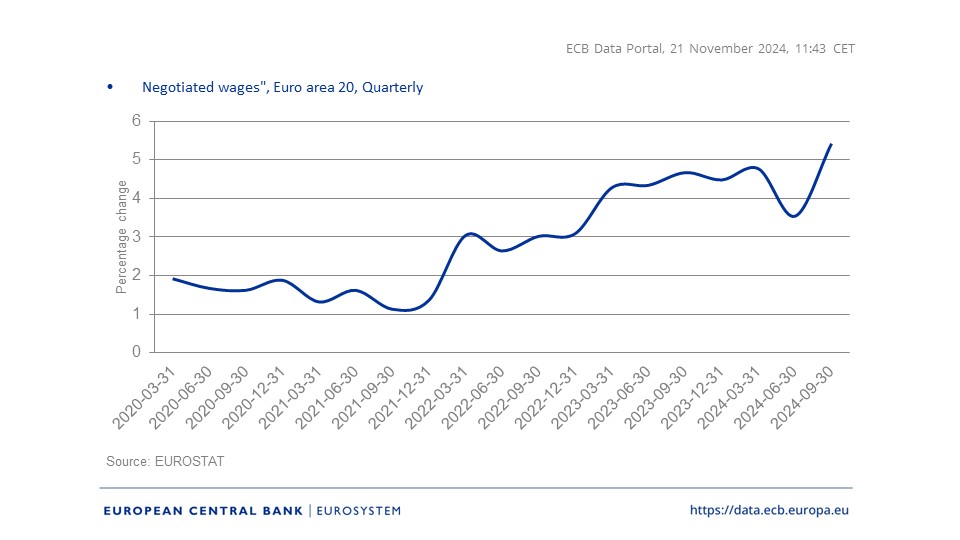Surprise pay rise in Europe
2 min
The European Central Bank (ECB) has already cut interest rates three times and markets are eagerly awaiting the next move. However, the recent release of eurozone wage growth figures for the third quarter has raised eyebrows. What can we expect?
The ECB's measure of wage increases, known as the "negotiated wage index", is based on collective agreements between employers and employee representative organisations. This forward-looking measure reflects upcoming wage increases and covers about two-thirds of the euro area economy. It excludes bonuses, overtime and other individual compensation not linked to collective bargaining.
Third quarter surprise

The data for the third quarter showed a significant increase in negotiated wages, which rose by 5.4% year-on-year - a marked increase compared with the second quarter and previous periods. Last summer, the ECB stressed the importance of monitoring wages when analysing the inflation outlook, particularly in the services sector, where inflation remains above the monetary policy target. The ECB's expectations of further disinflation were based on the assumption of moderate wage growth, which now seems a long way off.
While wage increases are good news for households and can stimulate demand, leading to higher growth, the ECB is concerned that substantial wage increases may also fuel inflation, especially in the services sector where wages represent a significant part of costs. Firms may try to pass on these additional costs in prices, leading to higher inflation rates.
Services inflation remains high
Despite the sharp fall in energy prices and the decline in many goods prices, services inflation in the euro area remains elevated. It stood at 4% year-on-year, which, although lower than in previous months, is still above the ECB's inflation target of 2%.
Services inflation starts to rise in 2022 peaking at 5.6% in mid-2023, before decelerating slightly. However, it has not fallen below 4%, which is more than double the average annual increase over the past decade. Meanwhile, core inflation - which excludes food, energy, tobacco and alcohol - has risen by around 2.7% year-on-year since April, more in line with the ECB's expectations.
Striking a balance
The rise in negotiated wages is expected to lead to significant real wage increases in the coming months and into next year, further fuelling already high services inflation. In this context, ECB governors face the challenge of determining the appropriate pace for further interest rate cuts in the euro area. Financial markets are watching the situation closely, given the high stakes involved.


